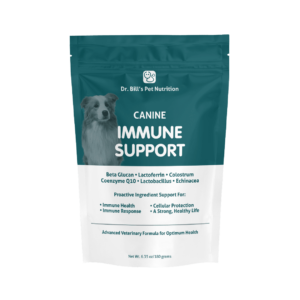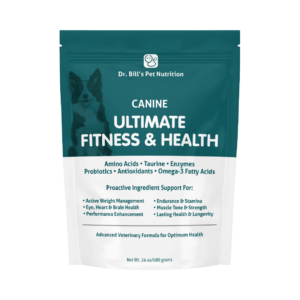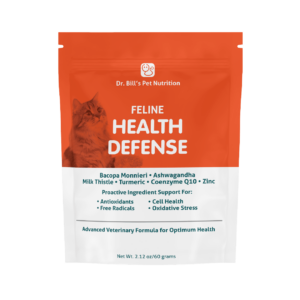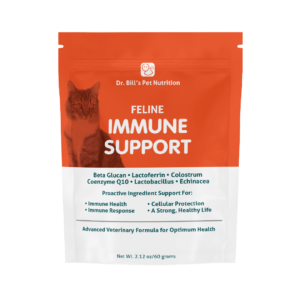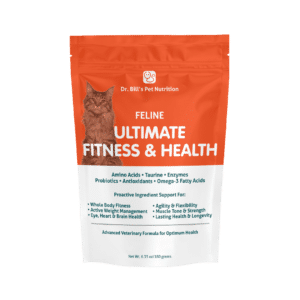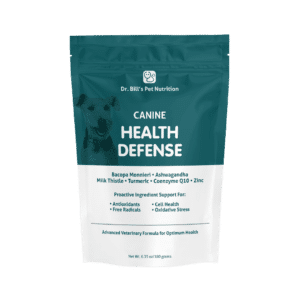
Coenzyme Q10 (Coq10)
CoQ10 is a lipophilic, vitamin like substance found in all animal cells, but more so in the heart, liver, kidney, and pancreas. CoQ10 is synthesized by all tissues in the animal body and is a powerful antioxidant. Circulating levels of CoQ10 decrease with age and should be supplemented in all senior pets or those experiencing disease, injury or stress.
Functions of Coenzyme Q-10:
- Acts as a powerful antioxidant
- Is an electron carrier in the lipid phase of the mitochondrial membrane
- Essential for ATP (energy) production
- Prevents initiation and/or propagation of lipid peroxidation in plasma lipoprotein membranes
- Prevents low density lipoprotein (LDL) oxidation, essential to cardiovascular health
Coenzyme Q10 is well recognized as a crucial component of the oxidative phosphorylation process in cellular mitochondria where the energy from carbohydrates and fatty acids is converted into ATP to drive the cellular machinery and support the cell’s biosynthesis.
Some new roles for coenzyme Q10 are being recognized. These aspects have primarily developed from the recognition that coenzyme Q10 can undergo oxidation/reduction reactions in other cell membranes such as lysosomes, plasma membranes and Golgi bodies. In mitochondria and lysosomes, coenzyme Q10 undergoes reduction/oxidation cycles during which it transfers protons across the membrane to form a proton gradient. The presence of high concentrations of quinol in all membranes provides a basis for antioxidant action either by direct reaction with free radicals or by the regeneration of tocopherol and ascorbate (vitamin E and C).
As an antioxidant, coenzyme Q10 helps to neutralize harmful free radicals, which are one of the primary causes of aging. Various factors, such as aging and stress, can lower the levels of coenzyme Q10 in the body and as a result decrease the ability of cells to withstand stress and regenerate. The levels of coenzyme Q10 in the body almost inevitably decline with age.
In some animal studies, rodents treated with supplemental coenzyme Q10 lived longer than their untreated counterparts. The effects of coenzyme Q10 supplements on human and animal longevity remain unknown.
CoQ10 and Immune Function
Pets that are nutritionally deficient have impaired cell–mediated immunity resulting in increased susceptibility to infections. Studies have shown that supplemental CoQ10 produces a significant enhancement of the immune system in both normal and immuno-depressed animals.
In 1970, it was first reported that CoQ6 and CoQ10, when administered to rats, significantly enhanced immune cells’ ability to kill bacteria, as well as elevated their antibody response.
By 1982, more than half a dozen studies had documented significant immunological enhancement following the administration of CoQ10.
Co Q10 and Brain Function
It is well established that deficiencies of myocardial CoQ10 results in derangements of cardiac energy production, eventually leading to cardiac cell death. Recent evidence now shows that a similar mechanism may be involved in degenerative brain disorders. CoQ10 should be considered as a potential aid in Canine and Feline Cognitive decline.
NEW
Subscribe & Save
Save 10% On Auto Deliveries
Shop Now
